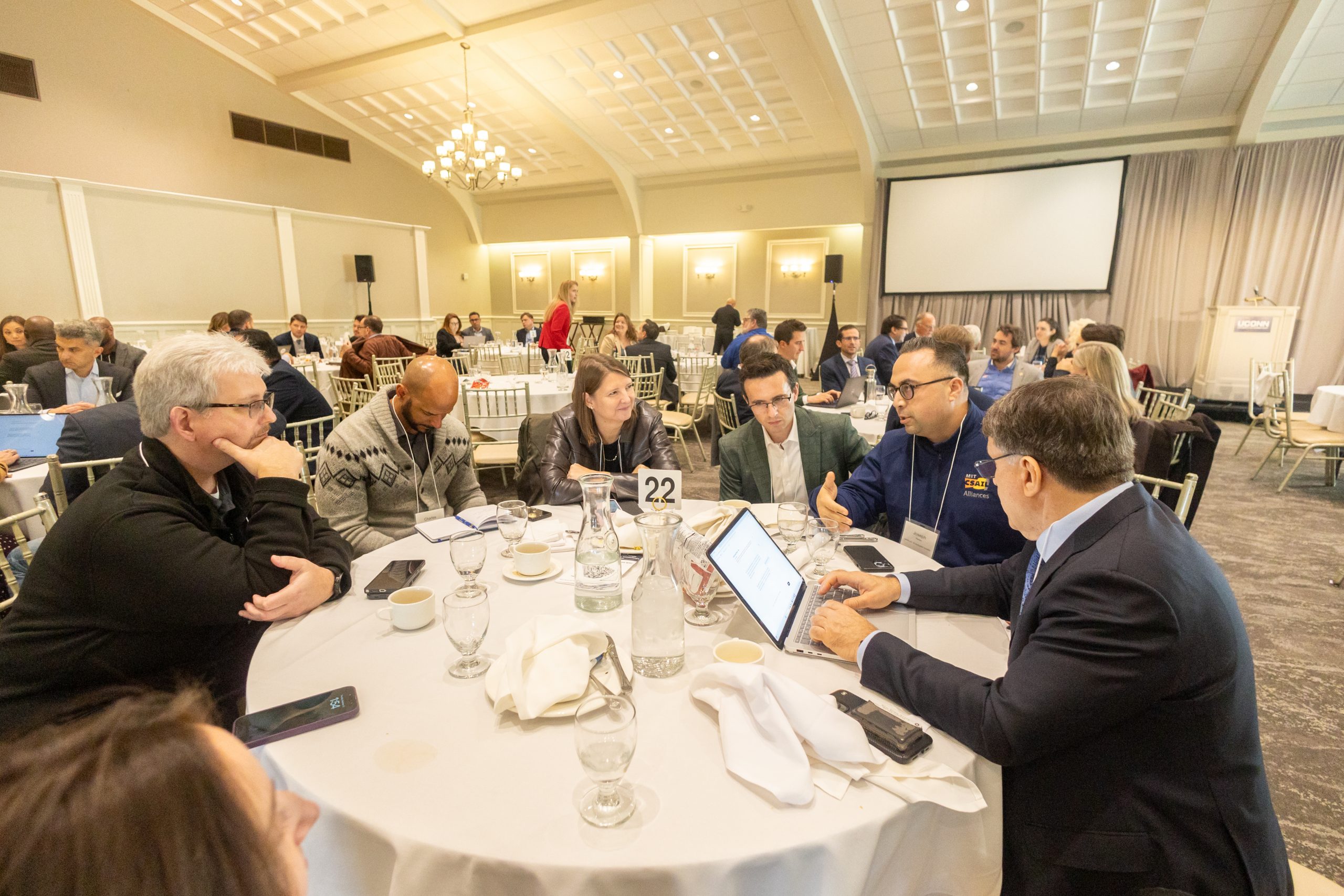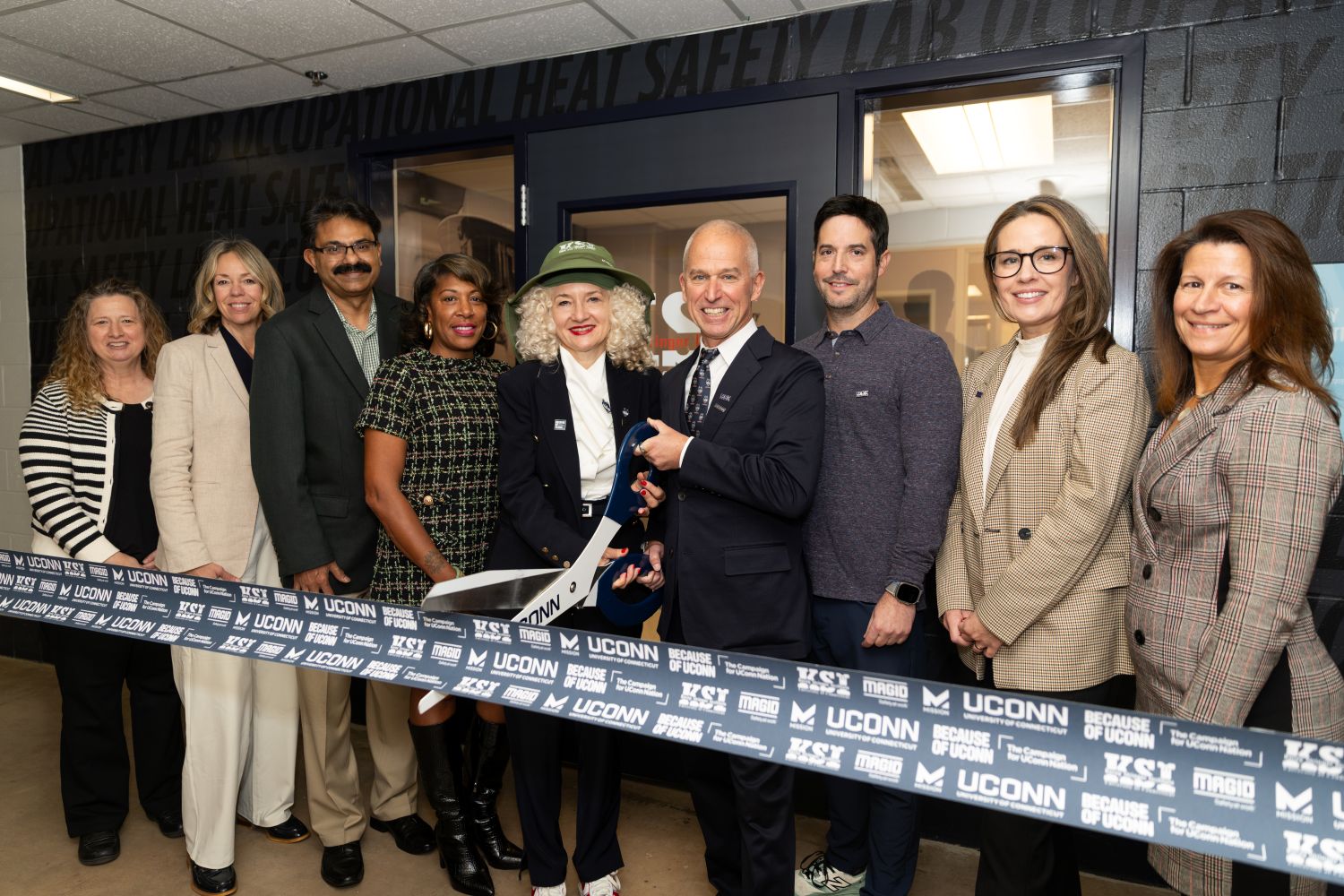 Dr. Richard Parnas, an associate professor in the Department of Chemical, Materials & Biomolecular Engineering, and two colleagues at the University of Connecticut, have been awarded $598,000 from the State to expand their clean energy research program involving biofuels. Dr. Parnas, who directs the University’s Biofuel Consortium and is also a member of the Polymer Program within the Institute of Materials Science, is joined by professor emeritus James Stuart of chemistry and Christopher Perkins, an academic assistant with the Center for Environmental Science & Engineering.
Dr. Richard Parnas, an associate professor in the Department of Chemical, Materials & Biomolecular Engineering, and two colleagues at the University of Connecticut, have been awarded $598,000 from the State to expand their clean energy research program involving biofuels. Dr. Parnas, who directs the University’s Biofuel Consortium and is also a member of the Polymer Program within the Institute of Materials Science, is joined by professor emeritus James Stuart of chemistry and Christopher Perkins, an academic assistant with the Center for Environmental Science & Engineering.
The funding will allow the researchers to develop the capability for remote monitoring and to build a biodiesel testing laboratory on the UConn campus. The grants were awarded through the Fuel Diversification Grant Program, which is administered by Connecticut Center for Advanced Technology and funded by the State’s Department of Economic and Community Development. The program also funded smaller projects at Yale University and the University of New Haven.
According to Dr. Parnas, the funding will support three interrelated and complementary tasks: development of an ASTM testing facility at the UConn campus; process monitoring at the production plant; and real-time, in-line process monitoring.
He explained that the testing facility “will provide Connecticut producers, distributors, and sellers ASTM testing services at a greatly reduced price in order to encourage additional biodiesel development in Connecticut.” According to Dr. Parnas, the high cost of testing – which can run as much as $1,000 a day – is an impediment to small startup companies. By offering ASTM testing at a much-reduced cost, the facility will help to foster more biodiesel startups across Connecticut. He expects the testing facility to come online in March 2009 with the capability of testing samples on six core ASTM tests; in the fall, the facility will offer all 18 ASTM biodiesel quality tests. Dr. Stuart and Mr. Perkins will assemble the testing facility.
Dr. Parnas will focus on developing the remote monitoring systems using fiber optic sensors coupled directly into the biodiesel production process for real time spectroscopy. “The system will permit us to monitor the quality of the biodiesel produced, by correlating spectroscopic data with ASTM tests. The remote system will also allow us to monitor incoming feedstock quality in terms of free fatty acid content, water content, protein content, and the like,” he said.
The Biofuel Consortium comprises students and professors associated with the departments and programs of chemistry, chemical engineering, plant science, marine science, natural resources, economics, and business who share a common interest in stimulating a biofuels industry within Connecticut. Within the Biofuel Consortium laboratory, researchers currently convert waste cooking oil collected from UConn dining facilities into clean-running fuel for on-campus buses. The research team is also investigating the use of other feedstocks, including biomass and even algae, into fuel. The consortium aims to help UConn reshape its environmental identity, develop environmental curricula and laboratory experiences for graduate and undergraduate students, and foster novel research targeting improved biofuel feedstocks and processing methodologies.
In commercial applications, biodiesel is typically mixed with conventional diesel fuel, often at a ratio of 2:8 (20% biodiesel to 80% petrodiesel) for the so-called “B20” fuel. When used in vehicles, biodiesel produces no sulfur dioxide and significantly reduces the emission of hydrocarbons and particulate matter compared with conventional petroleum-based fuels.
A second grant of $97,000 was awarded to Department Head and Distinguished Professor of Chemistry Steven Suib. Dr. Suib, a frequent research collaborator with engineering faculty, said that “novel active selective and stable catalysts are the cornerstone of the business of energy conversion. In this project, we seek to develop new catalysts, generate novel catalytic reactors, explore novel catalytic processes, train graduate students, and potentially generate jobs. An ancillary benefit of this work is that pollutants such as the CO2, ozone, NOx and sulfur oxides can be activated to either yield products that are marketable as fuels or chemicals, or removed from feed streams. This includes potential feedstocks such as contaminated natural gas or petroleum, or sulfur/NOx-laden coal, all of which are very abundant and available to the U.S.”


